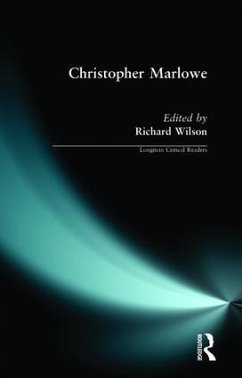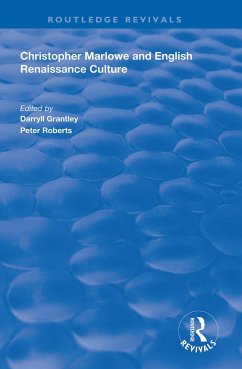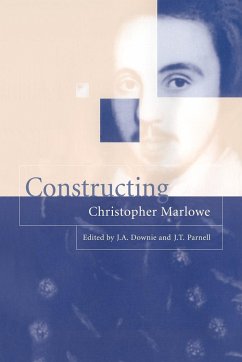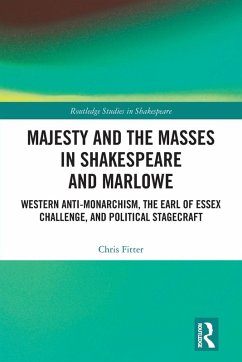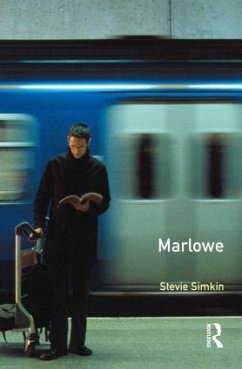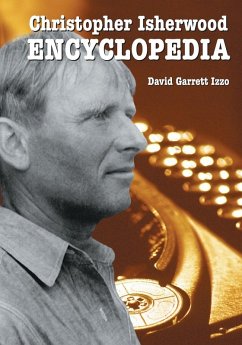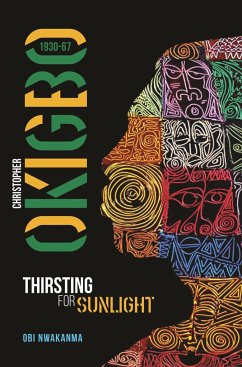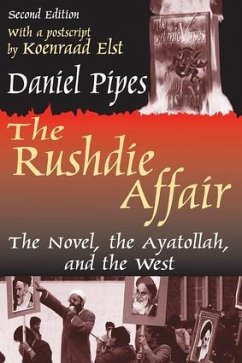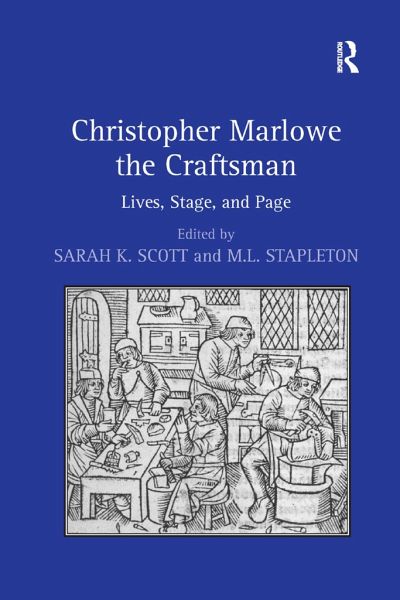
Christopher Marlowe the Craftsman
Lives, Stage, and Page
Herausgeber: Scott, Sarah K.
Versandkostenfrei!
Versandfertig in 1-2 Wochen
68,99 €
inkl. MwSt.
Weitere Ausgaben:

PAYBACK Punkte
34 °P sammeln!
Contributions to this volume explore the idea of Marlowe as a working artist, in keeping with John Addington Symonds' characterization of him as a "sculptor-poet." Throughout the body of his work-including not only the poems and plays, but also his forays into translation and imitation-a distinguished company of established and emerging literary scholars traces how Marlowe conceives an idea, shapes and refines it, then remakes and remodels it, only to refashion it further in his writing process. These essays necessarily overlap with one another in the categories of lives, stage, and page, whic...
Contributions to this volume explore the idea of Marlowe as a working artist, in keeping with John Addington Symonds' characterization of him as a "sculptor-poet." Throughout the body of his work-including not only the poems and plays, but also his forays into translation and imitation-a distinguished company of established and emerging literary scholars traces how Marlowe conceives an idea, shapes and refines it, then remakes and remodels it, only to refashion it further in his writing process. These essays necessarily overlap with one another in the categories of lives, stage, and page, which signals their interdependent nature regarding questions of authorship, theater and performance history, as well as interpretive issues within the works themselves. The contributors interpret and analyze the disputed facts of Marlowe's life, the textual difficulties that emerge from the staging of his plays, the critical investigations arising from analyses of individual works, and their relationship to those of his contemporaries. The collection engages in new ways the controversies and complexities of its subject's life and art. It reflects the flourishing state of Marlowe studies as it shapes the twenty-first century conception of the poet and playwright as master craftsman.





